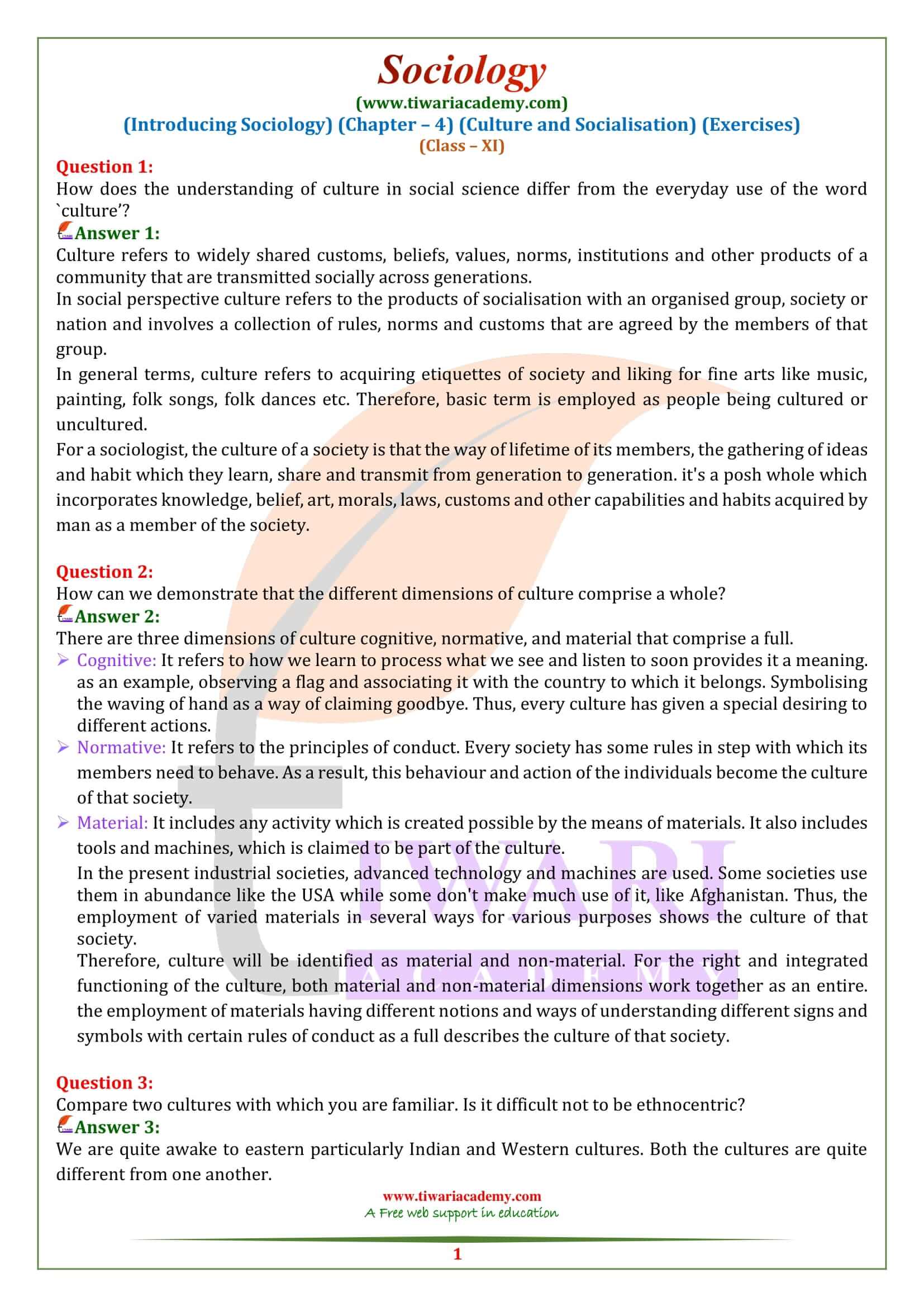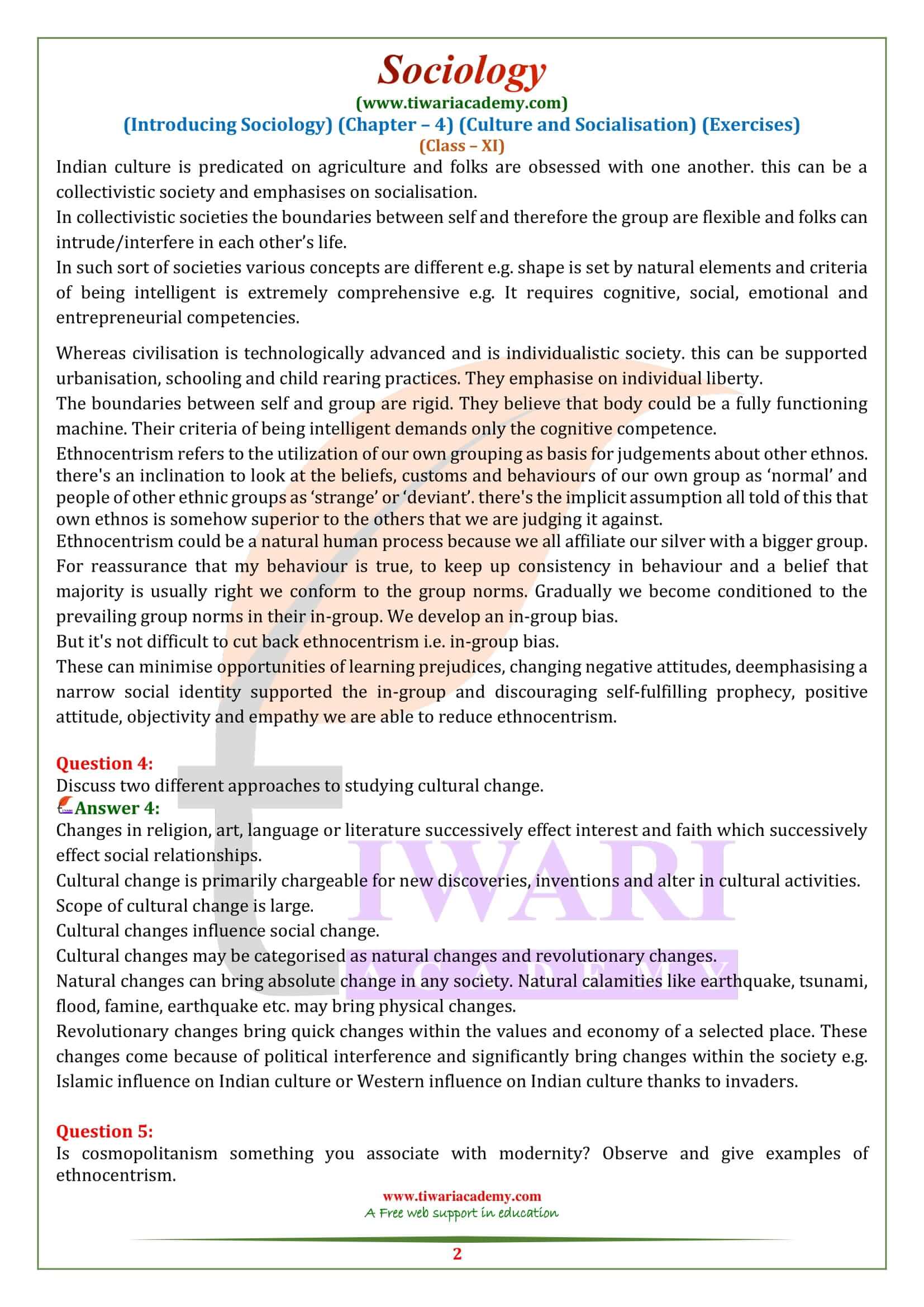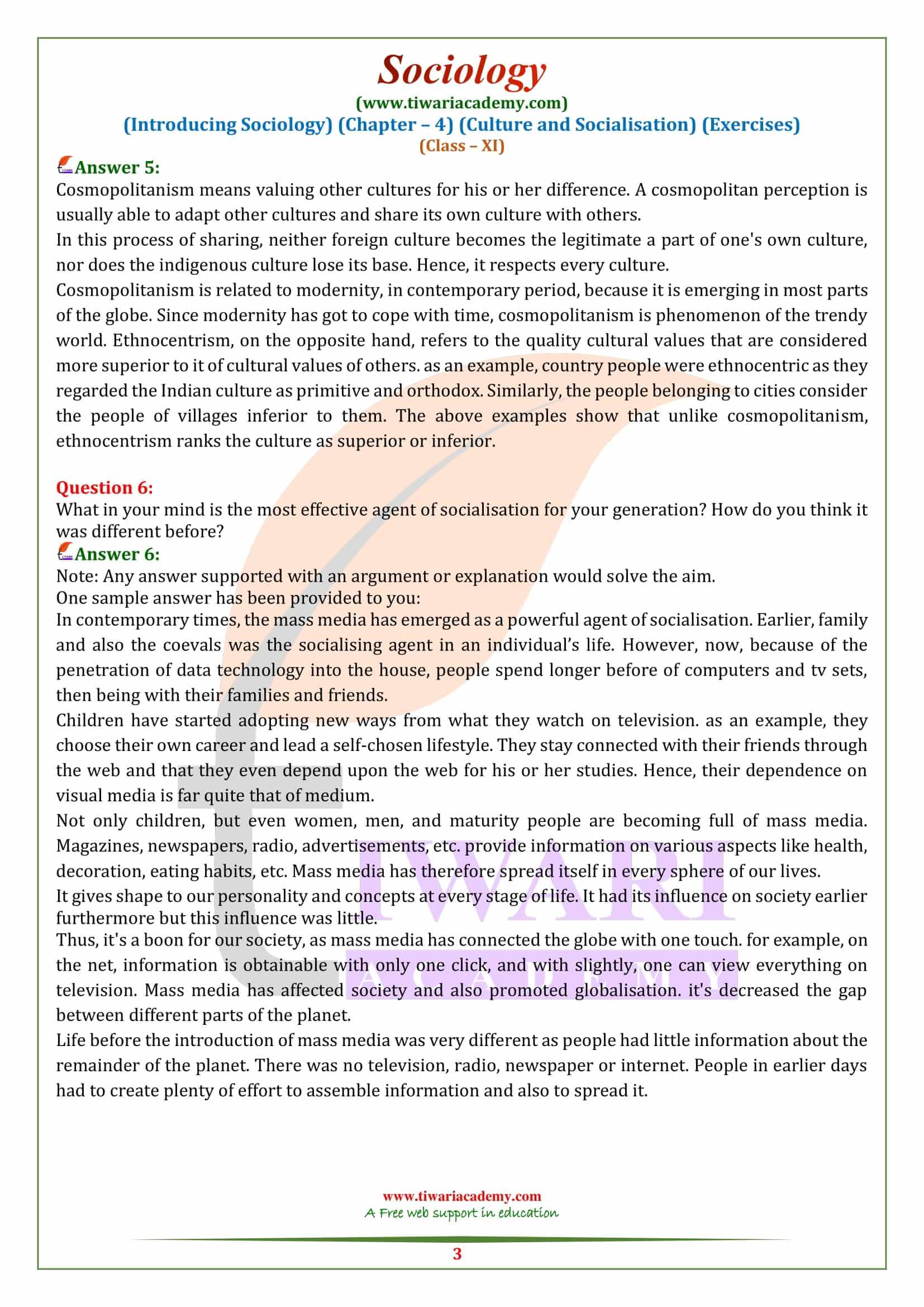NCERT Solutions for Class 11 Sociology Chapter 4 Culture and Socialisation in English Medium updated for new session 2025-26. Class 11 Sociology Part I Introducing Sociology chapter 4 exercises questions and multiple choice questions are useful for both CBSE and State board students.
Class 11 Sociology Chapter 4 Culture and Socialisation Question Answers
How can we demonstrate that the different dimensions of culture comprise a whole?
There are three dimensions of culture cognitive, normative, and material that comprise a full.
Cognitive: It refers to how we learn to process what we see and listen to soon provides it a meaning. as an example, observing a flag and associating it with the country to which it belongs. Symbolising the waving of hand as a way of claiming goodbye. Thus, every culture has given a special desiring to different actions.
Normative: It refers to the principles of conduct. Every society has some rules in step with which its members need to behave. As a result, this behaviour and action of the individuals become the culture of that society.
Material: It includes any activity which is created possible by the means of materials. It also includes tools and machines, which is claimed to be part of the culture.
In the present industrial societies, advanced technology and machines are used. Some societies use them in abundance like the USA while some don’t make much use of it, like Afghanistan. Thus, the employment of varied materials in several ways for various purposes shows the culture of that society.
Therefore, culture will be identified as material and non-material. For the right and integrated functioning of the culture, both material and non-material dimensions work together as an entire. the employment of materials having different notions and ways of understanding different signs and symbols with certain rules of conduct as a full describes the culture of that society.
Compare two cultures with which you are familiar. Is it difficult not to be ethnocentric?
We are quite awake to eastern particularly Indian and Western cultures. Both the cultures are quite different from one another.
Indian culture is predicated on agriculture and folks are obsessed with one another. this can be a collectivistic society and emphasises on socialisation.
In collectivistic societies the boundaries between self and therefore the group are flexible and folks can intrude/interfere in each other’s life.
In such sort of societies various concepts are different e.g. shape is set by natural elements and criteria of being intelligent is extremely comprehensive e.g. It requires cognitive, social, emotional and entrepreneurial competencies. Whereas civilisation is technologically advanced and is individualistic society. this can be supported urbanisation, schooling and child rearing practices. They emphasise on individual liberty. The boundaries between self and group are rigid. They believe that body could be a fully functioning machine. Their criteria of being intelligent demands only the cognitive competence.
Ethnocentrism refers to the utilization of our own grouping as basis for judgements about other ethnos. there’s an inclination to look at the beliefs, customs and behaviours of our own group as ‘normal’ and people of other ethnic groups as ‘strange’ or ‘deviant’. there’s the implicit assumption all told of this that own ethnos is somehow superior to the others that we are judging it against.
Ethnocentrism could be a natural human process because we all affiliate our silver with a bigger group. For reassurance that my behaviour is true, to keep up consistency in behaviour and a belief that majority is usually right we conform to the group norms. Gradually we become conditioned to the prevailing group norms in their in-group. We develop an in-group bias.
But it’s not difficult to cut back ethnocentrism i.e. in-group bias. These can minimise opportunities of learning prejudices, changing negative attitudes, deemphasising a narrow social identity supported the in-group and discouraging self-fulfilling prophecy, positive attitude, objectivity and empathy we are able to reduce ethnocentrism.
Discuss two different approaches to studying cultural change.
Changes in religion, art, language or literature successively effect interest and faith which successively effect social relationships.
Cultural change is primarily chargeable for new discoveries, inventions and alter in cultural activities.
Scope of cultural change is large.
Cultural changes influence social change.
Cultural changes may be categorised as natural changes and revolutionary changes.
Natural changes can bring absolute change in any society. Natural calamities like earthquake, tsunami, flood, famine, earthquake etc. may bring physical changes.
Revolutionary changes bring quick changes within the values and economy of a selected place. These changes come because of political interference and significantly bring changes within the society e.g. Islamic influence on Indian culture or Western influence on Indian culture thanks to invaders.




